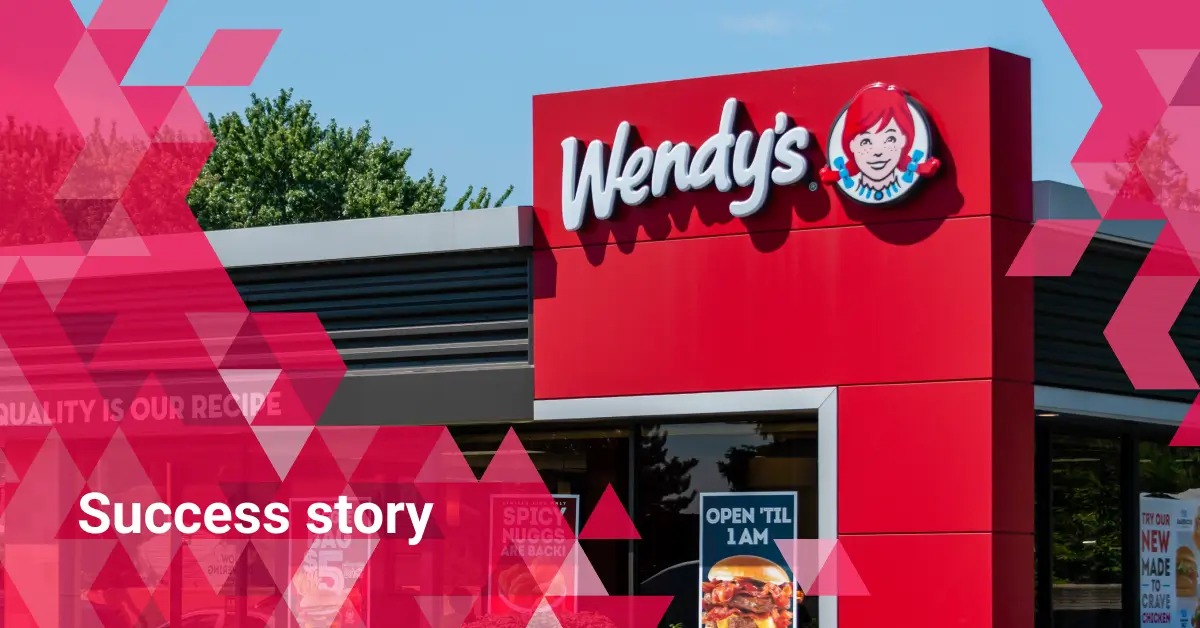5 Ways to Rock Your Employee Recruiting Strategy

Right on the heels of a global pandemic comes the next challenge for companies—one of the toughest labor markets in history. The best way for companies to find and hire qualified candidates is to create an employee recruiting strategy.
Discover How The Benefits of a Highly Engaged Workforce Can Boost Your Frontline Business
Across industries, there is a massive shortage of workers due to several factors. People are quitting their jobs easier and faster than ever. The gig economy is luring workers away with perks like greater flexibility. People are burnt out and are looking for new opportunities.
In fact, in 2021 an astounding 48 million people quit their jobs. Frontline industries are getting hit especially hard. And the Great Resignation is far from over. There are an increasing number of job openings around the United States alone. At last count, it was edging close to 11 million.
What does this mean for companies?
Hiring managers need to get creative when it comes to recruiting new workers.
Leverage their current talent to find new talent with employee referral programs
Attracting and hiring talent needs to be a deliberate process with dedicated and proven recruitment strategies
A recruiting strategy has gone from being a nice-to-have to a must-have for any company in today’s world.
What is a Recruitment Strategy?
An employee recruiting strategy is a business plan that lays out the best methods for finding, attracting, interviewing, and hiring talent for the positions in your company. Defining the steps for hiring (maybe even in an SOP document) streamlines the recruitment process and makes it much more efficient.
What Does Employee Recruitment Involve?
While recruiting might have specific nuances depending on the position that needs to be filled (i.e. a CFO versus a sales associate), the ultimate goal is to find the most qualified candidates for the roles in your company. But generally speaking, the recruitment process involves:
- Identifying positions that need to be filled
- Sourcing candidates from various sources (online, in-person events, etc.)
- Reviewing qualifications and narrowing down the candidate list
- Interviewing the top candidates
- Selecting and hiring the person to fill the position
- Onboarding
2 Types Of Employee Recruitment Strategies
There are two possible avenues for successful employee recruitment: internal and external. Let’s take a look at both.
1) Internal Recruitment Methods
Internal recruitment strategies mean leveraging your current workforce to find new talent.
This often takes the form of an employee referral program, an incentivized strategy in which your staff brings in friends and family to interview for jobs at the company.
PRO TIP: If you’re already a great company to work for and have high employee engagement, your employee referral program is already underway! People want to work for great companies they hear about from their network.
2) External Recruitment Methods
External recruitment is the traditional route of hiring talent.
These methods might include:
- Posting positions on your website
- Posting positions on social media, e.g. automate messages on LinkedIn to effectively reach out to your prospects.
- Posting positions on job boards outside of your company
- Attending in-person job fairs
- Connecting with college career centers to recruit recent graduates
- Hiring a recruiting firm
In today’s labor market, it’s best to take a well-rounded approach to make sure you’re reaching the candidates who best meet the qualifications for the position. But you’re also looking for a good fit for the values and culture at your company.
What Are The Most Important Recruiting KPIs?
Key performance indicators (KPIs) can help you determine if you have successful employee recruitment strategies or if it’s time to take a new approach. So, what should you look for to know if they’re working?
Here are five employee recruiting KPIs to track.
- The number of applicants for each position
- The time to hire (the length of time from when an applicant is contacted until an offer of employment is accepted)
- Offer acceptance rate
- Cost of each hire
- The overall turnover rate in your company
The best way to track recruitment strategy KPIs is with a digital employee solution with an analytics dashboard that can help you visualize the success of your strategies.
5 Tips for a Successful Employee Recruiting Strategy
Ready to get recruiting? First, make sure you’re staying up to date on the latest hiring trends so you know the latest, and best, ways to connect with potential candidates! Then, incorporate these five tips into your recruiting strategy and you’re on your way to building a resilient workforce.
1) Make it Mobile
Technology gives companies a leg up when it comes to attracting talent. Gen Z and Millennials make up the bulk of today’s workforce, and they’re also making up the bulk of the Great Resignation. are predominantly digital natives. They want to work for companies that think like they do and operate in the same digital orbits. They don’t necessarily fire up a desktop or a laptop when they apply for jobs.
In fact, Glassdoor found that 58% of job seekers look for opportunities on their phones. But companies don’t make it easy to apply so those job seekers who use their mobile devices complete 53% fewer applications.
Make sure every job posting, and accompanying applications, forms, and questionnaires, are mobile-friendly!
2) Speed Up Your Hiring Process
This is a two-part tip. First, make sure the application process is straightforward and easy. Consider a one-click application portal that allows candidates to quickly fill out their information and upload their resumes on one page before submitting. Ideally, it should take less than five minutes for someone to apply for a frontline position in your company.
The second part of this tip is to respond to qualified applicants right away. Wait too long and they’re already interviewing with the competition.
3) Create an Employee Referral Program
The best place to find new hires is from your current workforce. Word of mouth is a fantastic hiring strategy! Not only does it minimize your recruiting costs, but incoming candidates have the inside scoop on what it’s like to work for the company. Congratulations! That means you’ve done a good job creating a great workplace if your current employees are recruiting their friends!
With a mobile communication tool like Beekeeper, get the word out to your workforce that you’re looking to build your team. Employee referral programs are an especially effective strategy for sourcing candidates for frontline jobs. And better yet? Referred employees stay with the company longer! So you’ll boost your recruiting efforts AND retention!
4) Expand Your Recruiting Reach
What workers want has changed, and so should the way you look for talent. Expand your recruiting circles. A couple of ideas include:
- Partner with community colleges to create an apprenticeship program
- Connect with organizations that reach specific demographics
- Use social media where job seekers are spending their time
Connecting with many different groups of candidates will increase the number of applicants and also deliver a more diverse candidate pool.
5) Offer a Signing Bonus
No, signing bonuses aren’t just for professional athletes. They’re an effective recruiting strategy for hourly workers, too! Free iPhones, $1,000 cash. These are just some of the bonuses being offered by big companies like McDonald’s and Disney.
Pro tip: Once you get those candidates in the door, the best way to get them to stay is with great company culture, growth opportunities, and a competitive wage.
As the competition for talent heats up, now is the time to implement an employee recruiting strategy. And it’s going to take much more than simple job postings. So think big—leverage mobile communication tools, get your workforce to help you recruit, offer perks, and try new ways of reaching potential candidates. Having a full workforce with high retention is key to your company’s success. Now, what are you waiting for? Design a rock-solid recruiting strategy and get hiring!

About the author
Beekeeper
We make frontline lives easier, work safer, and teams more connected so businesses can reach new heights. At Beekeeper, we’re dedicated to making frontline lives easier by connecting workers with the tools, support, and information they need to feel valued, do their best work, and drive the business forward.







